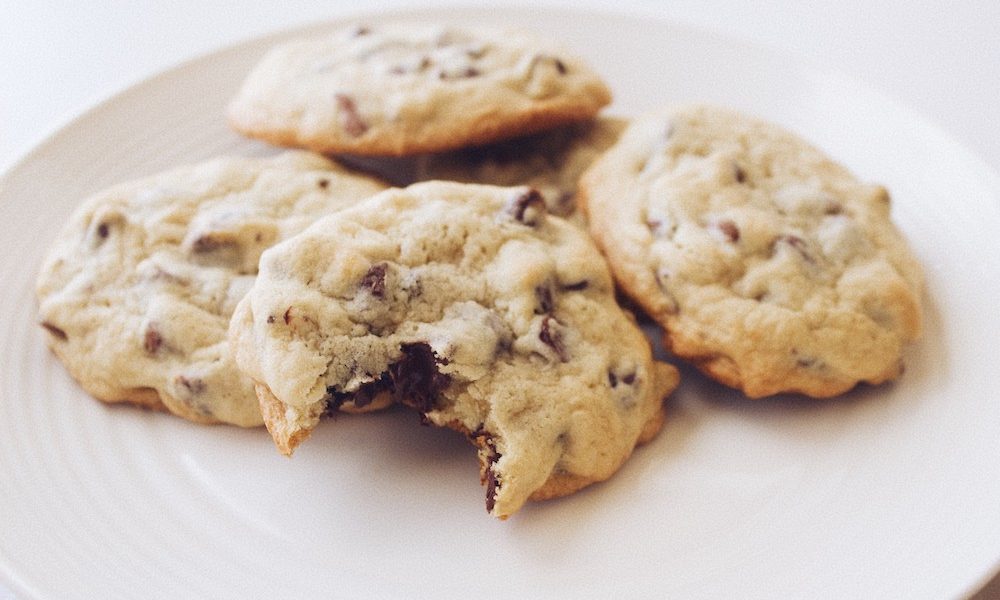The food addiction model has made headlines in recent years, but how much of it is actually true? Let’s examine how these assumptions are fueling a harmful narrative.
BY: EMILY FONNESBECK, RD, CD, CLT
The theory of food addiction is controversial. Despite what mainstream media and health gurus have led you to believe, the research to date is inconclusive.
As such, the current food addiction narrative is more misinformed and fear-mongering than anything that’s actually substantiated by legitimate, long-term peer-reviewed research.
For example, let’s take a look at the existing sugar detox frenzy. It’s important to first acknowledge that you don’t need sugar, per se, for your physical wellbeing.
You do need carbohydrates though, and it’s very common for those concerned about eating sugar to throw a blanket over all types of carbohydrates only to find themselves in restrictive eating patterns that aren’t nutritionally adequate. So while there’s no general argument over whether sugar is healthy or not, it’s more about the effect that eliminating sugar (and any other carbs) has on food behaviors.
In fact, when you dig into the research, it becomes overwhelmingly apparent that the rationale for researching food addiction, or being concerned with possible addictive behaviors, to food is deeply rooted in weight stigma and fighting the “obesity epidemic”.
Conventional thought is that body discontent will motivate someone toward healthier behaviors around food. However, mounting evidence is finding the opposite – that body discontent is associated with disordered eating patterns, binge eating, lower levels of physical activity and increased weight gain over time.
The reality is that weight stigma – or stereotyping based on a person’s weight – is positively correlated with body dissatisfaction and disordered eating. Let’s take a closer look to examine some of the most common assumptions around food addiction.
WHO’S REALLY EATING MORE?
One common stereotype and assumption made about those living in larger bodies is that they eat more. These individuals themselves may internalize that belief and blame themselves for eating amounts that are actually adequate and no different than those in thin bodies.
However, studies conducted on free living adults have shown individuals with a variety of BMI’s can show little difference, on average, in calorie consumption. There is a considerable difference for calorie intake within each BMI group, with many smaller people eating more than larger people. It’s important to challenge this assumption because it fuels the idea that caloric restriction is necessary or even healthy for those classified as “overweight” or “obese”.
IS THE ADDICT LABEL ACCURATE?
The food addiction model has two specific drawbacks: 1) it was adapted from screening tools for drug and alcohol addiction; and 2) it doesn’t account for restrained or restrictive eating patterns. Clearly, these are huge red flags.
First, we can encourage abstinence from drugs and alcohol but not from food. You still need to eat. Secondly, does declaring yourself as an addict actually feel empowering? In the case of sugar, declaring that you’ll never eat it again and always saying no may make you feel “in control” momentarily, but biology always catches up. In fact, you are more likely to feel controlled by the food rules you’ve adopted, and extreme shame if and when you disobey those rules.
And if addiction is the result of unmet emotional needs, then avoidance may be the common denominator between drugs, alcohol, and food, not addiction itself. It’s more likely helpful to encourage alternative coping strategies for uncomfortable emotions or difficult life stressors than abstinence. As Linda Bacon, author of Health At Every Size, once said: “Food is a wonderful source of pleasure, but it will get you into trouble if it’s the only source of pleasure you have in your life.”
DOESN’T IT HAVE THE SAME EFFECT AS DRUGS?
You may have heard reports of studies on rats, and the way sugar lit up the same neural pathways as cocaine. However, when you look closely at these studies, this only occurred when rats underwent forced restriction – such as a human on a diet. In other words, deprivation increases the reward response from food, but it doesn’t make the brain dependent on it.
A surefire way to make yourself preoccupied and obsessed with food is to restrict its consumption. In fact, food habituation studies have shown the more often you see a food, the less of it you eat.
Also, it’s important to acknowledge these same reward centers respond when you listen to music, pet your cat or hear a baby giggle. Plus, you’re not a rat; we need human studies to be able to fully apply any research findings.
IF FOOD ISN’T THE SOURCE OF OBESITY, WHAT IS?
Weight stigma, fatphobia, and the concern for “obesity” has led us to label individuals as addicts rather than leaning in to identify the true source of someone’s pain. Rather than categorizing their compulsive behaviors as symptoms of addictions, view them as symptoms of distrust for their bodies and a brain stuck in a pendulum-swinging diet mentality.
In fact, food restriction is more likely to cause compulsive behaviors, such as binge eating, and those who feel deeply troubled by their food behaviors need professional support, not another cleanse or detox.
The truth is, all-or-nothing mentalities have never been helpful.
And labeling sugar or any food as “unhealthy”, “toxic”, or “addictive” can easily lead to extremes in eating, which is more unhealthy than any one food. Ultimately, balance, variety and flexibility are always the key to adequate nutrition for a healthier body.
Remember, you’re a human who’s living in the grey.
Adapted from the original post.
HEADER IMAGE: IZABELLE ACHESON
Emily Fonnesbeck, RD, CD, CLT is a Utah-based private practice Registered Dietitian. Instead of creating unnecessary restrictions, Emily focuses on helping individuals become confident and in charge of their own well-being through Intuitive Eating and Mindful Living. She is a strong believer and advocate for helping people become capable individuals who are confident in taking care of themselves. Make a visit and read more from Emily.

